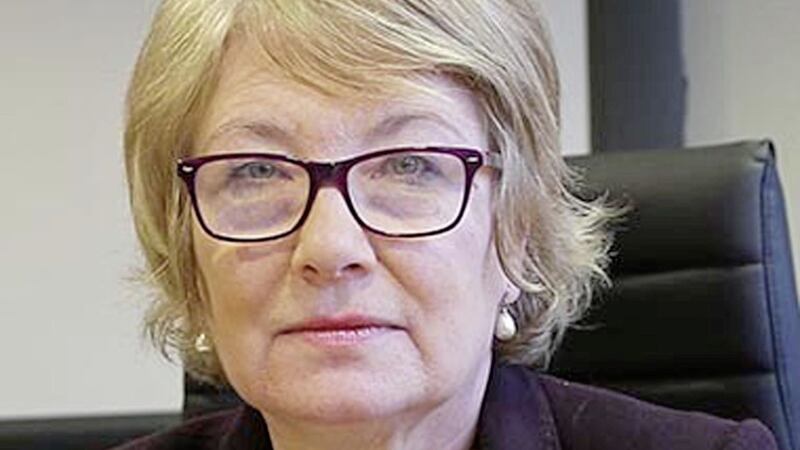Police Ombudsman Marie Anderson has said that "collusive behaviours" identified in Operation Achille were "systemic".
The ombudsman was speaking after the publication of Operation Achille on Monday.
The investigation into 11 murders by the UDA/UFF in south Belfast found there was "collusive behaviour" on the part of police.
The attacks included the killing of five people at the Sean Graham bookmakers in February 1992.
Among her findings Ms Anderson highlighted failures to warn two men that their lives were under threat.
- Confirmed the deliberate destruction of files relating to the attack at Sean Graham bookmakers.
- The failure of RUC Special Branch to pass on information to investigators.
- Unjustifiable and continued use by Special Branch of informants involved in serious criminality, including murder and the passive "turning a blind eye" to such activities.
Ms Anderson also revealed that officials from her office have identified eight UDA/UFF members linked through intelligence to the murders and attempted murders of 27 people.
Ms Anderson's latest report comes just weeks after Operation Greenwich, which examined the activities of North West UDA/UFF, also identified "collusive behaviour".
Previous ombudsman reports, including one into the 1994 Loughinisland massacre, when six men were shot dead by the UVF, and the killing of 17-year-old Damien Walsh by the UDA in March 1993, have raised similar concerns.
Speaking to the Irish News, Ms Anderson agreed there was a pattern of behaviour associated with RUC Special Branch during the period covered by recent reports.
"Yes, absolutely, I do think there is a pattern emerging," she said.
Ms Anderson said common themes included a failure to disseminate information to investigators, the use of informers and the destruction of records.
Ms Anderson suggested there may be more revelations to come.
"You might be aware that I have other complex investigations ongoing and they are not concluded yet and so I am not pre determining the outcome but I think that they will complete the picture during the relevant period of police conduct in relation in particular to loyalist paramilitaries," she said.
"There is an emerging picture and I believe that a fuller picture will become available to the public, which is important to the public and the families when those other investigations are complete."
Ms Anderson said she has considered if the failings identified are systemic.
"I have thought about this quiet a lot and I think for me systemic behaviours are those that are repeated, widespread and serious and I have certainly seen evidence of that now in these two major thematic investigations (Greenwich and Achille)," she said.
"So the answer is yes, and you are going to ask me I have no doubt, did this go all the way to the top?
"Can I just explain when there is systemic behaviours like this, and I have described them as collusive behaviours, in some respects when there is repeated serious and widespread behaviour which contravenes RUC force orders, which contravenes guidelines, then an accepted practice, then I believe that is so serious that if it wasn't known by the senior officers who led the RUC at the time it should have been known."
Ms Anderson added that revelations around informers are "are probably one of the most shocking parts of the report".
Asked if any of the eight RUC informers referred to in the report went on to work for the PSNI or still work for the police, Ms Anderson said "I cannot confirm or deny".
In her report the ombudsman reviewed police documents detailing proposals for the recruitment of a UDA/UFF member.
"The documentation listed intelligence implicating this individual in numerous terrorist attacks, including a ‘prominent role’ in multiple murders," the report said.
"The author of the police document argued that this person’s history of involvement in loyalist paramilitary activity made them an ideal candidate for recruitment as an informant.
"Although this recruitment was unsuccessful at that time this individual later agreed to become an informant for the PSNI."
Asked if this person was one of the eight, Ms Anderson said "I cannot confirm or deny".







